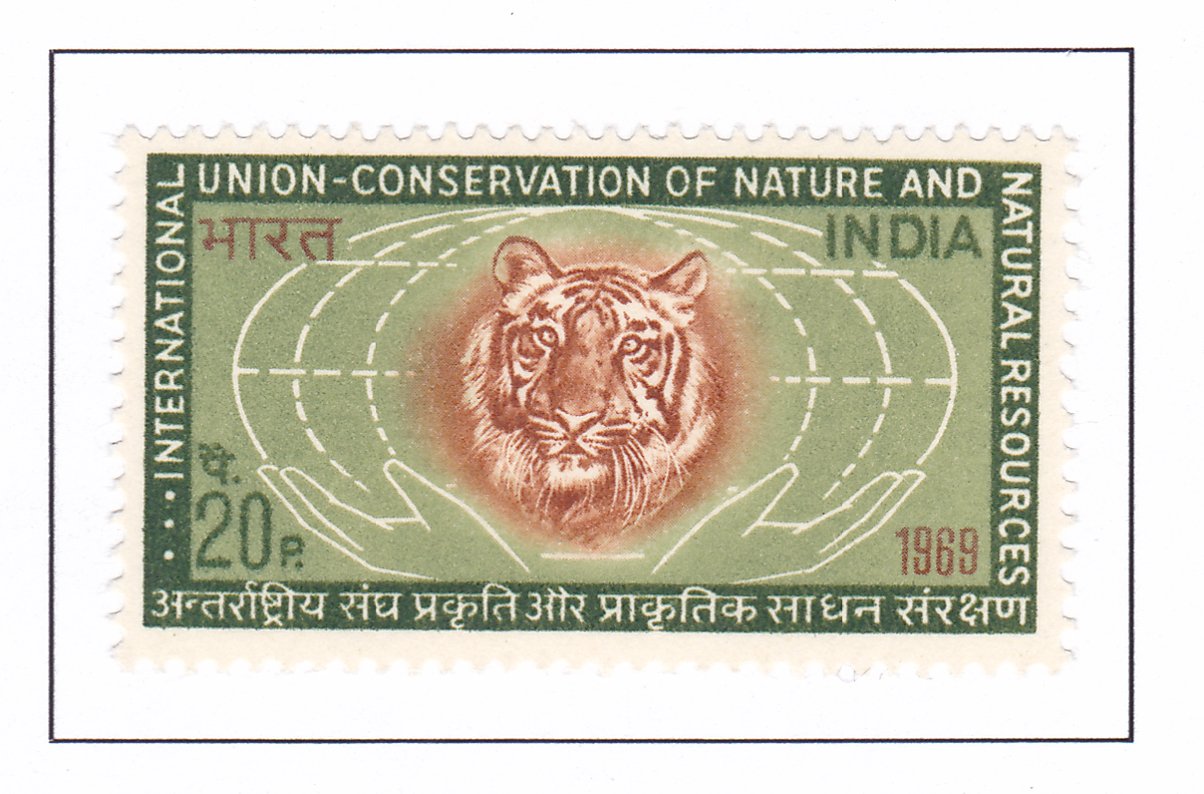International Union for Conservation of Nature and Natural Resources (IUCN)

Technical Data
| Date of Issue | November 24, 1969 |
|---|---|
| Denomination | 20 nP |
| Quantity | 3,000,000 |
| Perforation | 14½ x 14 |
| Printer | Security Printing Press, Nashik |
| Watermark | No Watermark |
| Colors | Bronze green | Orange brown |
| Catalog Codes |
Michel IN 489 Stamp Number IN 505 Yvert et Tellier IN 287 Stanley Gibbons IN 603 |
| Themes | Animals (Fauna) | Conferences | Environment Protection | Globes | Hands | Mammals | Tigers | Wild Cats |
International Union for Conservation of Nature and Natural Resources (IUCN) defines conservation as the rational use of the Earth’s resources to achieve the highest quality of living for mankind. The organization’s primary focus is on conserving plants, animals, soil, water, air, and other natural resources essential for sustaining life on Earth.
IUCN promotes awareness through education to help people understand the value of renewable natural resources and the importance of using them wisely. Additionally, it conducts research to discover the best conservation measures and advance the study of ecology. The organization provides assistance by offering ecological advice, scientific data, technical expertise, and support for practical conservation programs. It also takes action on both national and international levels to support conservation efforts and improve legislation related to environmental protection.
IUCN comprises six commissions:
- Survival Service Commission: Formed in 1949 to prevent the extinction of threatened species of wildlife.
- Commission on Education: Responsible for educational aspects related to nature conservation and serves as a clearinghouse for educational materials.
- Commission of Ecology: Acts as the primary scientific advisory body for the Union.
- International Commission on National Parks: Specializes in encouraging the establishment of national parks worldwide.
- Commission on Legislation: Provides information on conservation-related legislation to governments and advises on proposed legislation.
- Commission on Landscape Planning: Focuses on the relationship between humans and their environment, particularly in land use planning.
Every third year, the Union convenes a General Assembly to address current conservation issues and serve as a forum for discussion. Previous assemblies have been held in various countries around the world. The tenth General Assembly is scheduled to take place in New Delhi, India.
Given India’s rich biodiversity, hosting the IUCN General Assembly holds significant importance. With its diverse wildlife and natural resources, India hopes that the discussions and deliberations during the conference will lead to the conservation of its natural heritage. To commemorate this event, the Posts and Telegraphs Department plans to issue a special postage stamp marking the inauguration of the Conference.
